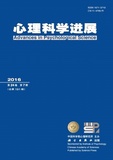|
|
Emotional Conflict: A New Research Topic
HU Zhi-Guo;LIU Hong-Yan;ZHANG Xue-Xin
2008, 16 (5):
692-698.
Emotional conflict is a new psychological research topic, which is stemmed from the research of cognitive conflict. The article introduced emotional conflict from three aspects: (1) The general research situation of cognitive conflict, since it is the origin of the research of emotional conflict; (2) Behavioral studies on emotional conflict, including studies adopting emotional Stroop paradigm, word-face Stroop paradigm, emotional priming paradigm and emotional Flanker paradigm, et al. (3) Neural imaging studies of emotional conflict, including monitoring and resolution of emotional conflict. For future studies, paradigms in the research of cognitive conflict should be widely adapted, to investigate the remained issues in the research of emotional conflict, such as, when and how emotional conflict happens, influential factors and dynamic changes of emotional conflict, and the corresponding neural substrates. Furthermore, the emotional disorders (e.g., depression, anxiety disorders) should be studied in the research of emotional conflict, so as to translate basic research findings to clinical applications
Related Articles |
Metrics
|




